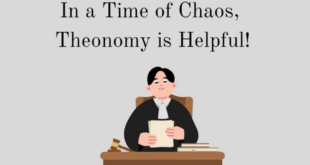*I will repost Jeremiah 31:31-34 at the beginning of each article in this series. Don’t skip it. Chew on it and let it sink in each time.
“Behold, the days are coming, declares the LORD, when I will make a new covenant with the house of Israel and the house of Judah, not like the covenant that I made with their fathers on the day when I took them by the hand to bring them out of the land of Egypt, my covenant that they broke, though I was their husband, declares the LORD. For this is the covenant that I will make with the house of Israel after those days, declares the LORD: I will put my law within them, and I will write it on their hearts. And I will be their God, and they shall be my people. And no longer shall each one teach his neighbor and each his brother, saying, ‘Know the LORD,’ for they shall all know me, from the least of them to the greatest, declares the LORD. For I will forgive their iniquity, and I will remember their sin no more.” Jeremiah 31:31-34 ESV
Much of the techniques that will be employed in examining this passage are found in the proceeding articles on How to study the Bible. The following is a paper written for Belhaven University as an exposition on the New Covenant seen in Jeremiah 31:31-34. This is part 3 of 3:
Unfolding Eschatology
In view of God’s fulfillment of the Old Testament prophecies brought about in the New Covenant, we will turn our attention to the unfolding eschatology of the New Covenant in the New Testament in Christ. While not always explicitly stated as the “New Covenant” often in the New Testament, the concept of the New Covenant from Jeremiah 31:31-34 is the undercurrent throughout the entire New Testament. (14) In Jesus’ time, the New Covenant for the Kingdom of God was expected to be enacted all at once yet Jesus taught that it was to grow in stages (Matthew 13:31-33). (15) We will observe the New Covenant in the unfolding stages of the inauguration, continuation, and consummation of the Kingdom of God.
The Inauguration of the Kingdom of God through Christ includes His life, death, atonement, and resurrection. (16) In the New Testament, we observed that Christ inaugurated the New Covenant by giving Himself as the atoning sacrifice for mankind’s sin thereby purchasing a people for Himself (Luke 22:14-22, 1 Corinthians 11:23-26, Romans 3:21-26). (17) Through this sacrifice and blood-bought purchase, Christ is enabling His people to have a complete change of heart and mind by being born again (John 3:1-21), effectively causing His people to respond to His voice that is calling them by name (John 10:3-4, 14-16). Indeed, without God’s intervention on behalf of His people through Christ’s work, mankind is powerless to be able to come to the Father on their own (John 6:44, Ephesians 2:1-9).
The Continuation of the Kingdom of God through Christ includes the time in between His first and second coming-the time we live today. (18) We see examples of how the New Covenant concept is functioning within the early church. In the Book of Acts, Scripture states that after the Gentiles heard the message that the Gospel would be offered to them they began to rejoice, and then Scripture states “…as many as were appointed to eternal life believed” (Acts 13:48 ESV). Although subtle, the message is clear in that the ones that were appointed to eternal life believed-the gentiles that were bought by Christ’s atonement effectively believed. In another passage, Scripture states, “The Lord opened her (Lydia’s) heart to pay attention to what was said by Paul” (Acts 16:14 ESV). God effectively opened her heart to be able to hear the message given by Paul and then she responded in faith (Acts 16:15).
Despite clear connections of the New Covenant promises in Jeremiah 31:31-34 in the New Testament, there are still aspects that have yet to come to fruition. God’s people still sin (1 John 1:8) and still require teaching in order to know God (Matthew 28:18-20) as stated would not be the case when the New Covenant is fully consummated. This brings us to observe the Consummation of the Kingdom of God in Christ-the time period after Christ’s return. Once Christ returns, the Kingdom of God will be fully consummated and the New Covenant will be completely enacted. There will be no more sin (Jeremiah 31:33) and God’s people will no longer seek to know the Lord (Jeremiah 31:34) because they will be in His presence forevermore as seen in Revelation 21:1-22:5. Revelation 21:1-22:5 is the portrait that the New Covenant in Jeremiah 31:31-34 has been pointing to: Yahweh will be His people’s God and they will be His people forever (Jeremiah 31:33). Vaughan Roberts notes the Kingdom of God as, “God’s people, in God’s place, under God’s rule and blessing.” (19) This is the picture we see of God and His people in Revelation 21:1-22:5 when the restoration of the New Covenant is complete.
Implications and applications
The implications and application of the New Covenant promise for us today are massive. It makes evangelism possible and effective for world missions. Although our effort and striving are necessary and commanded (Matthew 28:18-20), we must not rely on our tactics and persuasion in order to change the hearts of His people. This is a complete relief from relying on our own strength and cunning persuasion of people. To know that God is in charge of human history and will see to it that He will effectively bring His people to Himself is actually a relief on our part and also empowers the church in knowing that the mission given by God will not fail.
Conclusion
In conclusion, the importance of the passage of Jeremiah 31:31-34 cannot be overstated. However, as we have observed, many factors must be taken into account while attempting to interpret this passage in its correct context while extracting its implications for God’s people on this side of the New Testament. The purpose of this paper was to: discuss how Jeremiah 31:31-34 relates to its historical and its literary context; compare and contrast the “New” Covenant and the “Old” Covenant; and finally, discuss what the canonical perspective of Jeremiah 31:31-34 is throughout Scripture and how Christ fulfills this passage in the inauguration, continuation, and consummation of His Kingdom. The study of the New Covenant in Jeremiah 31:31-34 as it is seen throughout Scripture has been an amazing journey and one that I will use throughout my future ministry.
Footnotes
- Longman and Garland, The Expositor’s Bible Commentary: Jeremiah-Ezekiel, 396.
- Third Millenium Ministries, “He Gave Us Prophets: Lesson 8: Unfolding Eschatology,” accessed
November 15, 2022, https://thirdmill.org/seminary/lesson.asp/vid/33
- Third Millenium Ministries, “He Gave Us Prophets: Lesson 8: Unfolding Eschatology.”
- Piper, “The New Covenant and New Covenant People.”
- Third Millenium Ministries, “He Gave Us Prophets: Lesson 8: Unfolding Eschatology.”
- Vaughan Roberts, God’s Big Picture (Illinois: InterVarsity Press, 2002), 22.
Bibliography
Hays, J. Daniel, and Longman, Tremper III, The Message of the Prophets, (Michigan,
Zondervan, 2010).
Longman, Tremper III, and Garland, David E., The Expositor’s Bible Commentary Volume 7:
Jeremiah-Ezekiel, Revised ed., (Michigan, Zondervan, 2010).
Mackie, Tim, Read Scripture: Illustrated Summaries of Biblical Books, 3rd ed., (Oregon,
BibleProject, 2020).
Piper, John, “The New Covenant and New Covenant People,” accessed November 15, 2022,
https://www.desiringgod.org/messages/the-new-covenant-and-the-new-covenant-people
Roberts, Vaughan, God’s Big Picture (Illinois, InterVarsity Press, 2002).
Third Millenium Ministries, “He Gave Us Prophets: Lesson 8: Unfolding Eschatology,” accessed
November 15, 2022, https://thirdmill.org/seminary/lesson.asp/vid/33
 Getting Job-ed
Getting Job-ed


